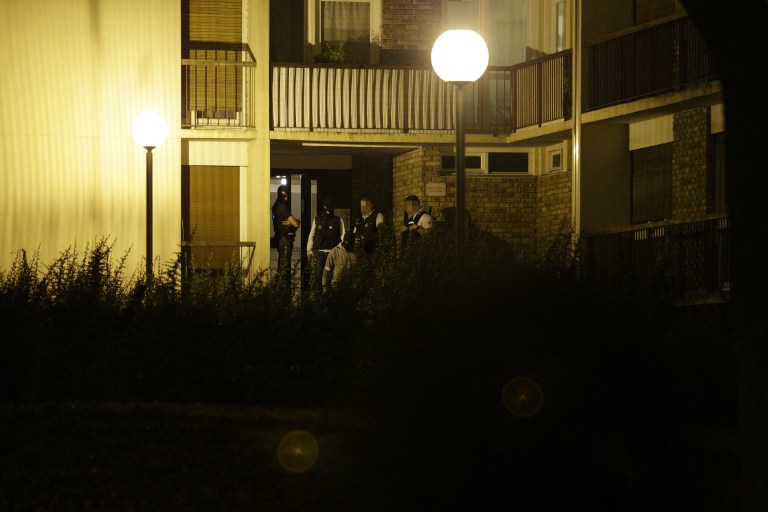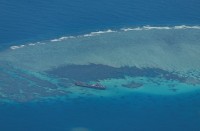
A woman wanted in connection with the discovery of a car found near Notre Dame cathedral in Paris containing six gas canisters was shot and arrested by police south of the capital, an inquiry source said. The woman seized in Boussy-Saint-Antoine was one of the car owner’s daughters, the source said, adding that a police officer suffered a knife wound during the arrest. Two other women were also held.
/ AFP PHOTO / GEOFFROY VAN DER HASSELT
PARIS, France (AFP) – Seven people are in custody in France after intelligence services foiled a plot to use a car laden with gas cylinders to carry out an attack in Paris.
Anti-terrorism prosecutor Francois Molins said the would-be attackers were guided by the Islamic State group in Syria.
French President Francois Hollande said the terror cell behind the plot had been “destroyed”.
Here is what we know so far:
Car spotted
A worker at a bar near Notre Dame cathedral in Paris’s central tourist area spotted a grey Peugeot 607 illegally parked in a side street on September 4.
It had no number plates, its hazard lights were flashing and there was an empty gas cylinder on a seat.
Police discovered five full gas cylinders in the boot, but no detonators. Three bottles of diesel fuel were also found in the vehicle.
The car’s owner was identified through the insurance badge on the windscreen.
Police believe the car was intended to be used in an attack.
Molins said a “half-smoked cigarette” and a piece of material soaked in flammable liquid found in the boot suggested that attempts were made to light the gas cylinders.
Terror link
The car’s owner, known to authorities for his Islamist preaching, was questioned and released, but attention quickly shifted to his 19-year-old daughter Ines Madani.
She was already known to intelligence services after trying several times to travel to Syria, Molins said.
A letter pledging allegiance to IS was found in her handbag.
Belgian TV reported that Madani was known to have made contact with Islamic extremists in Belgium.
She was arrested on Thursday along with two other women, identified only as Sarah H. and Amel S., aged 23 and 39.
The teenager was shot and wounded in the thigh and ankle during the arrests, and a police officer was stabbed in the stomach.
Sarah H. stabbed a policeman in the shoulder.
She was the fiancee of Larossi Abballa, who killed a senior police officer and his partner at their home in a Paris suburb in June before himself being shot dead, Molins said.
Sarah H. had then became engaged to Adel Kermiche, one of two jihadists who killed an elderly priest in July near the northern city of Rouen and was also killed by police.
The 15-year-old daughter of Amel S. has also been arrested and three other people are in custody.
Why France again?
French security services had issued a warning about a possible attack on train stations in Paris and the southern suburb where Madani lived, a police source said.
Molins said she and her accomplices were “determined” to launch an attack.
The foiled plot comes two months after a Tunisian radical slammed a lorry into a crowd of Bastille Day revellers in Nice, killing 86 people.
IS has claimed responsibility for a string of jihadist attacks, including last November’s coordinated bloodshed in which gunmen and suicide bombers killed 130 people in Paris.
In May, the head of France’s DGSI domestic intelligence service, Patrick Calvar, warned of a “new form of attack” in which explosive devices would be left near sites that attract large crowds.
burs-gd/gj/har
© 1994-2016 Agence France-Press








